Will SEO change in 2019?
Definitely, YES!
Change is certain and unpreventable.
So with that in mind let me give you my 3 SEO predictions for 2019.
SEO predictions for 2019
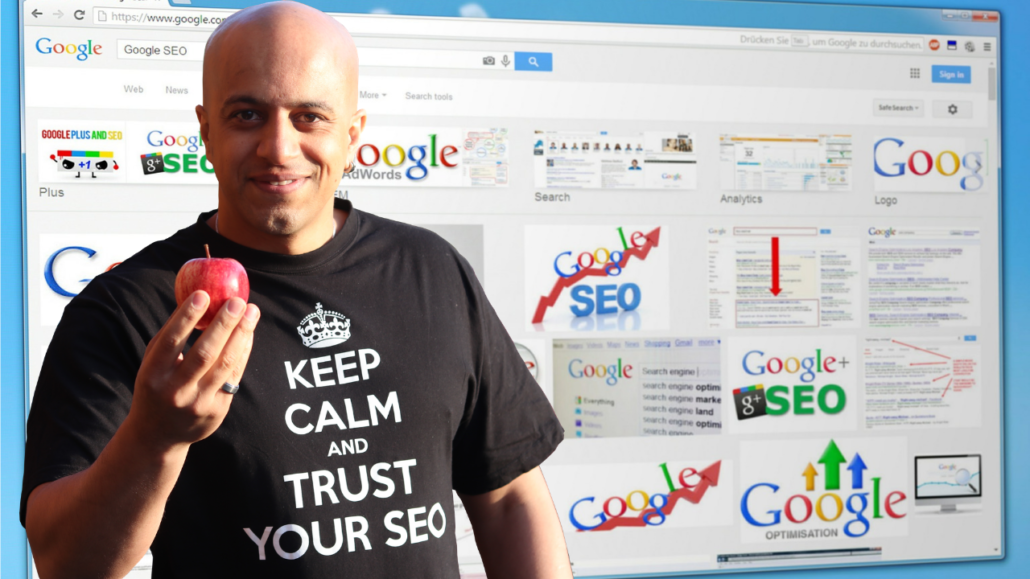
The orgnic SERPs are shrinking
Let’s start with the obvious. There are fewer and fewer clicks on organic results in the SERPs. There are many reasons for this decline but two of the biggest offenders are:
There are more features in the SERPs than ever before like featured snippets, instant answers or knowledge boxes all reducing organic CTR.
You can see in this study by Ahrefs (Ahrefs’ Study Of 2 Million Featured Snippets: 10 Important Takeaways ) that where no featured snippet is present in the search engine result page (SERP), the top organic search result will get about 26% of all click-throughs.
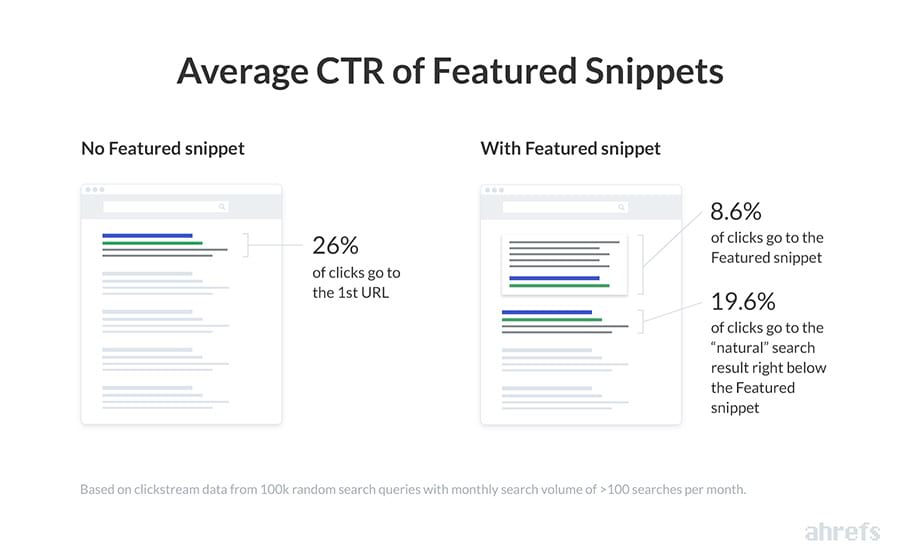
On the other side when Google is providing a featured snippet, the top organic search result gets less than 20% of all click-throughs, while the featured snippet itself gets 8.6% of the clicks.
In another study by STAT (Featured Snippets: From Then to Now, Volatility and Voice Search) tracking 1 million keywords, 31% of the queries produced featured snippets.
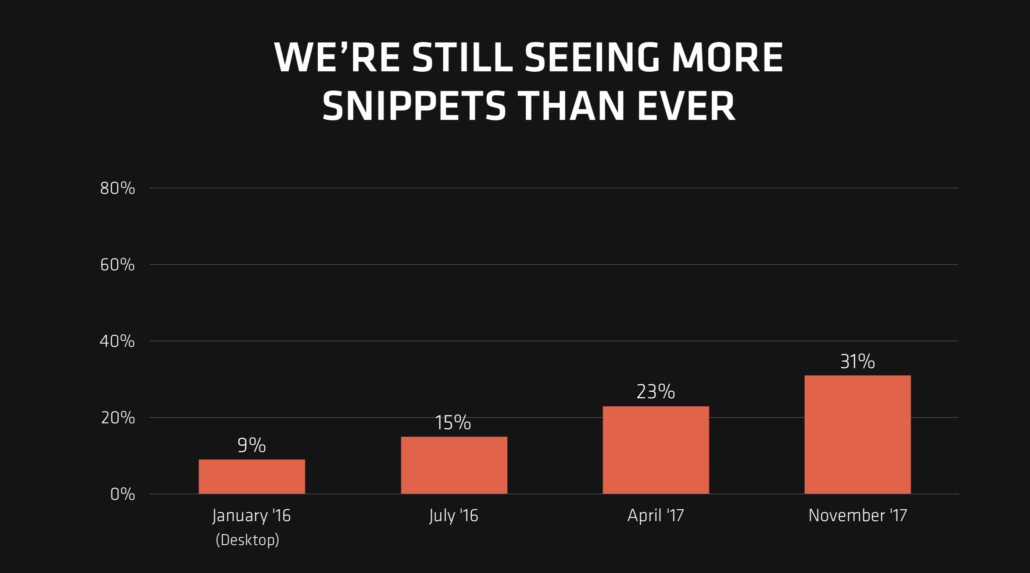
As the search giant gets better and better at understanding and subsequently delivering featured snippets, this rate is likely to grow even further in the future.
Google Ads are killing SEO
Well, while the above statement may sound like an attention seeking headline, over the years we’ve seen Google adding more and more ads to the top of the SERPs.
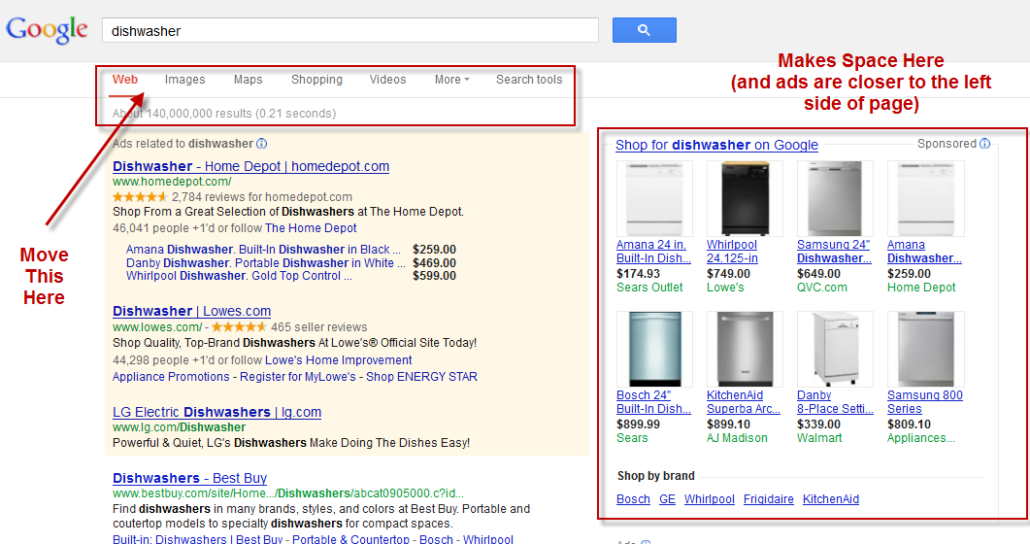
In the last two years, we’ve seen Google serving up to four text ads – up from the previous maximum of three – at the top of desktop search results for “highly commercial queries.
Add to this any other organic or paid advertising modules that Google also displays in the SERPs and you end up with the first organic search result displaying well below the scroll line for some searches.
So what can we do to increase (in many cases actually maintain) our organic CTR?
Rank number one. I’m sorry, I didn’t really want to say it but it’s true. You have to find a way to outrank your competition.
Focus on less highly commercial queries. Or in other words, avoid keywords that have “easy” answers.
Instead of focusing on what you can’t have, focus your attention on the SERPs that you can win. Identify search queries that are valuable to your business but don’t trigger large numbers of ads and focus more heavily on those.
Write articles that target informational search queries. It’s obvious that a high volume of ads is focused on commercial search queries. Get around that roadblock by producing content that answers questions your customers may have, and this content offers advice they are searching for online, or gives them the tools they need to make the right purchase.
I think the famous Gary Vee calls this action “Jab, Jab, Jab, Right Hook“:
A story is at its best when it’s not intrusive, when it brings value to a platform’s consumers, and when it fits in as a natural step along the customer’s path to making a purchase.
Or in our case give your visitors something valuable before asking them to purchase and you may end up with loyal customers which is always good for your long term SEO strategy.
Build your brand.
We can’t help it. We’re creatures of habit.
I know I talk a lot about SEO and branding and this year will be no exception.
Brand recognition is a powerful weapon to win the “battle of the SERPs”. Powerful enough for your customer to skip on Google’s top ranking post and click on your link. Powerful enough even to drive a more expensive sale.
I always click on what I know and what I trust. And that all comes down to branding.
Watch this video by Rand Fishkin (via Moz). Yes, it’s an old video but it’s still very relevant.
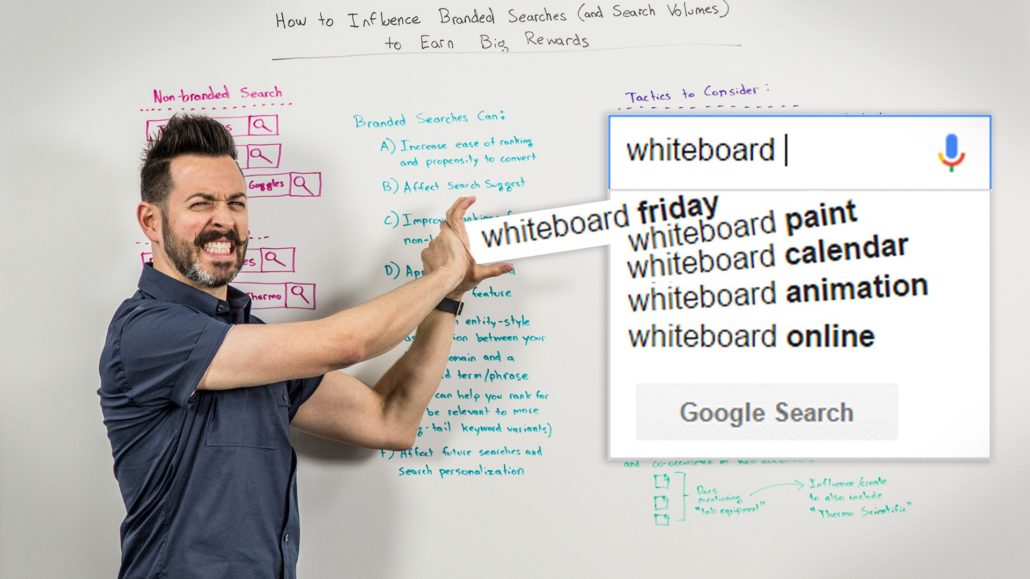
Voice search and SEO in 2019
To truly understand the importance of Voice S

Today the Voice Search technology has four main players:
- Google, whose Google Voice Search relies on its own algorithms
- Amazon, whose Alexa Voice Search uses Bing as a search engine
- Apple, whose Siri is now using Google, after a long time using Bing
- Windows, whose Cortana uses Bing – which is also owned by Microsoft – as a search engine.
Today, voice shopping accounts for around $2 billion in consumer spending and is expected to be a $40 billion channel by 2022. (Source: OC&C Strategy Consultants)
The stats above plus this study by BrightLocal on “Voice Search for Local Business “may force us to start actively optimising for Voice Search in 2019. But there is where I have to stop you. Things in SEO and for that matter Digital Marketing are never that clear.
First, let’s start with the prediction that by “2020, 50% of all searches will be carried out via voice.”
Almost every article online talking about The Future of Voice Search is citing this stat. But similar to the famous SEO slogan “Content is King” things have become a little distorted in the retelling.
For a start, this prediction was made in 2014 by Andrew Yan-Tak Ng and not Mary Meeker in 2016 and then the original prediction was for voice and images and not just voice.
Secondly, and probably more importantly, not many people are using voice search to purchase things online. Merely 2% of consumers who own the 50 million Alexa-enabled devices used the voice option to make a purchase at the beginning of 2018. (Source: The Reality Behind Voice Shopping Hype). But the worst thing really is that the vast majority of those who did – 90% – opted not to repeat the process.
Without revenue in sight, it is very difficult to convince businesses to invest in a task.
Which brings me back to SEO and how I see SEO and Voice S
Looking at Voice Search from an SEO point of view I see a shift in all search engines from keywords to semantics and natural language processing. Since the introduction of Google Hummingbird, I see more and more SERPs populated with results which take into account context information such as the kind of device used, geolocation, time of the day, previous searches and more.
To make sure the user is getting absolutely the best result Google is also using a machine learning algorithm called RankBrain. Not just that but they also tell us that RankBrain is the third most important ranking factor.
Google engineers probably see serving contextual answers to users queries as something very important for the future of the search giant. So looking at the bigger picture Voice Search is one more reason for businesses to really focus on content structure and rethink each page or article as an answer for specific personas.
If you are curious to learn more about Voice S
The place of User Experience (UX) in SEO
I have to admit that I have never been big on user experience and SEO. But the more I read about RankBrain and machine learning in SEO the more I realise that as search engine algorithms continue to evolve, user engagement will be playing a greater role than ever in determining rankings.
If you’ve been paying attention to SEO and Google’s shift to a “Machine learning first company” over the past couple of years, you know that our SEO efforts have shifted away from just ranking for search terms and more toward providing searchers online with information that answers their questions.
This is where SEO and UX start to work together. Both disciplines are all about providing users with content that is relevant to them and helping them complete their tasks.
To see a strong organic performance in the SERPs, it’s crucial to foster a positive engagement and participation with your audience.
Every visitor to your website that bounces back sends a signal to Google that your site’s UX isn’t up to scratch. And if these signals accumulate over time, your ranking will drop.
As digital marketers (let’s not forget that SEO is part of Digital Marketing), when it comes to SEO we should stop thinking of just the content and the keywords on the page: we also have to start thinking about how users interact with the content on that page and the content on the next page they view on the website. We have to give the users the great experience they are looking for.
I can easily say that in 2019, a website optimised for SEO will naturally follow UX best practices.
So how do we make UX and SEO work together for better user experience?
When it comes to UX and SEO many digital marketers talk about increasing page speed, making the website mobile friendly or not using disruptive ad placements. That’s all good but in my opinion, the most important UX optimisation and the one I always push for with my clients is optimising for user intent.

To properly explain the term “optimising for user intent” I would probably have to write another article devoted just to this term but for now, the easiest way to understand user intent is through categorization.
In general, there are four types of searches:
Informational
If a user searches “what is SEO” he/she is still looking for basic information about the topic and is still far from making a purchase.
Comparison
If a user searches “SEO v PPC” we know that the user is looking to compare these two products. A webpage explaining the pros and cons of these products would satisfy the intent.
Transactional
If a user searches “best SEO agency in London” we know that the user is evaluating different SEO providers in London and is close to making a purchase.
Navigational
If a user searches “omisido” or “omi sido” they are using these queries because they believe entities exist or they have seen them somewhere already. Queries that fall in the navigational bucket tend to be around specific websites, places, people, or locations. The fact is, you don’t stand much of a chance targeting a navigational query unless you happen to own the site that the person is looking for.
My tip here will be to make sure you own your own brand’s navigational query. Ideally, your site will appear in both the top organic spot and as the top sponsored result in a search for your brand or company name.
The results are more human
When an SEO starts thinking about user intent, he or she is actually thinking about how to best meet the needs of a potential user. User intent signals the major shift in digital experience today.
No longer is SEO a strategy by itself. Instead over the last few years, SEO has rolled into the broader fields of marketing, including conversion optimization, PR and UX.
In the past, we SEOs have treated search engines as mechanical algorithms that are hungry for keywords and general functionality. But it’s becoming more and more evident that SEO should consider them being more human as it is clear that Google understands that our customers need to be served the not just the most helpful
As far as I am concerned this is a good thing for all of us.
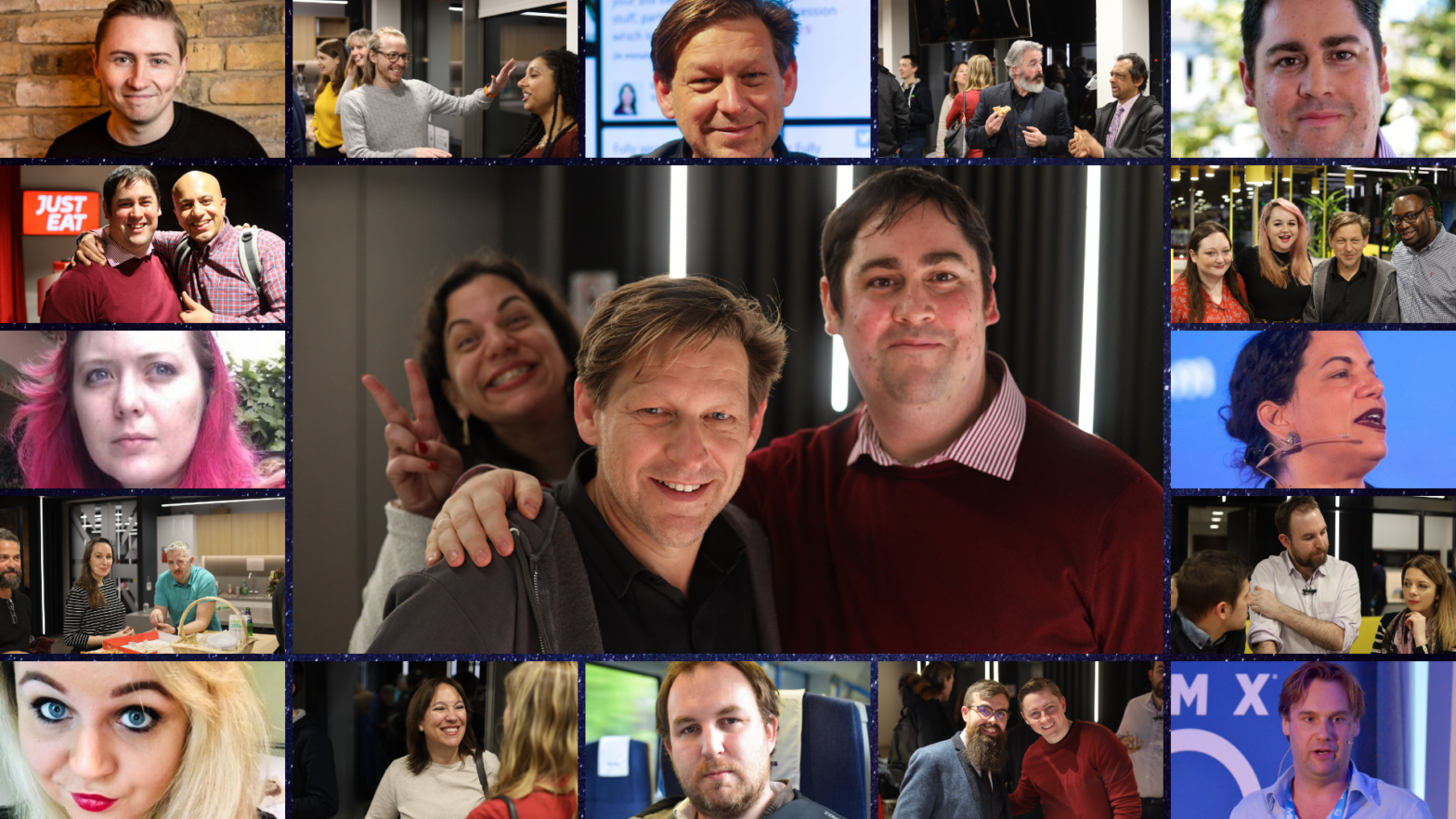

Leave a Reply